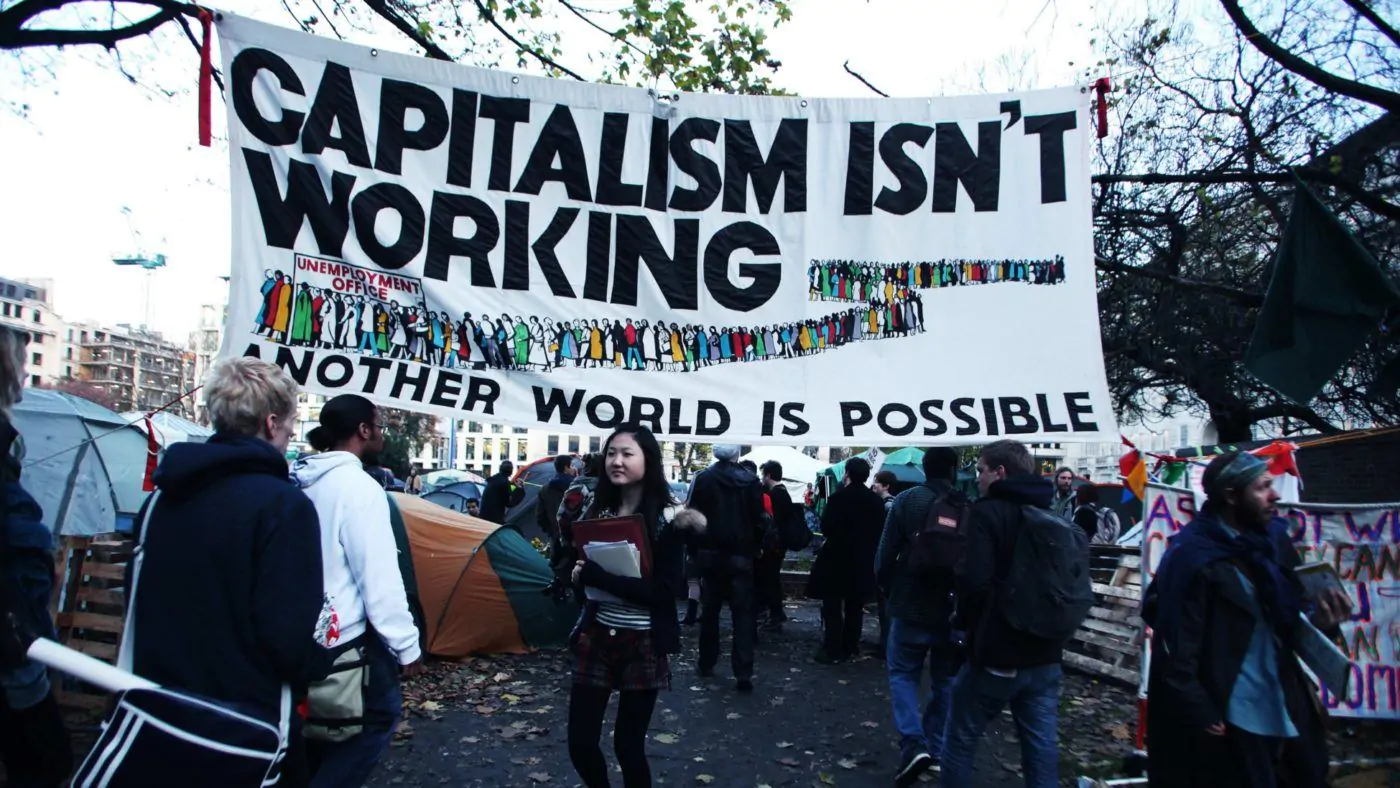The heir to capitalism, should we see its end, may lie among these four possible economic futures.
I cannot blame anyone who says it is easier to imagine the end of the world than the end of capitalism. The Marxist theorist fredric jameson he loved this expression: for him (and in unsuspecting times, “pre-Greta”) the environmental apocalypse seemed more probable than the triumph of an economic alternative to the current system.
A disenchanted vision, which not surprisingly became known as "capitalist realism".
In recent years, things have changed a bit, and several authors have supported an alternative vision. “Beyond capitalism: machines, work, properties" (2018) by Julius Sapelli and three very recent interviews with Noam Chomsky made during the pandemic and collected in the volume "Crisis of civilization, pandemic and capitalism” (2020) argue similar things.
Both conclude, for example, that technological advances will make most of the work worthless and could free up human beings (provided they are supported by a universal basic income, I add).
The next “fully automated luxury communism” by Aaron Bastani (2019) will occupy similar ground, asking: “What if instead of having no sense of the future, history hadn't actually begun?”
It could be even worse, though
The US anthropologist David Graber it is no coincidence that he claims that, within 50 years, “we will certainly have a non-capitalist system”. But he also added: "it could be something even worse."
Exactly what are the scenarios on the table for an economic and social system that intervenes at the end of capitalism to guide humanity through the next historical phase?
"Four models of the future” is a book that deftly examines this possibility. Peter Frase, its author, offers alternative visions of economic systems, "worse" or "better" than the current one.
Like others, Frase assumes that technology will make human labor obsolete. Above all, he adds, The benefits or harms of automation will not be determined by robots, but by who owns them and who does not own them.
Class inequality and the existential challenge of climate change both present us with the ugly (but concrete) possibility that technology may not bring about a utopian society.
Frase's book is neither a prophecy nor a simple fantasy, but a true work of "social science fiction": an attempt to "explore all the scenarios that could lead to our future political conflicts".
First scenario, equality and abundance: communism.
Technology has enabled the transition to a post-work and post-carbon future, and traditional class divisions have decreased. Sentence warns, however: status hierarchies will persist. Debates, to put it with Cory Doctorow, are solved not by those who have the most money, but by those who can acquire the greatest social status. And China's "social credit" system, which ranks citizens based on their behavior, or the Western tyranny of social media and retweets come to mind.
Second scenario, it remembers more closely the present, hierarchy and abundance: rentism.
Although the material conditions for “luxury” communism exist, new technologies and patents have nevertheless been monopolized by an elite. Human labor, Frase suggests, could continue (with all its burden of exploitation), endure since “having power over others is,” for this elite, “the reward.”
But rentism could take root if the problems related to climate change were resolved in the meantime.
If environmental degradation persists, however, writes Sentence, there would be two other possible future scenarios.
The third scenario, equality and scarcity: socialism.
In a world of limited resources due to the climate, the state has the power to radically overhaul infrastructure and distribute risks and benefits equally. Work is progressively decreasing, but also consumption: sustainable socialism, therefore, not luxury communism.
The last scenario, the worst, hierarchy and scarcity: extermination.
While the rich seek to monopolize space and resources in an “Eco-apocalypse” framework, the majority of humanity is increasingly marginalized.
Frase conveys the idea well with a disturbing phrase: “the great danger of the automation of production is that from the point of view of the elites in power it makes the great mass of people superfluous”. Instead of neglecting or imprisoning the poor, why don't we simply eliminate them?
Autonomous drones and “killer robots” mark an ever-increasing distance between genocide and the simple press of a button.


